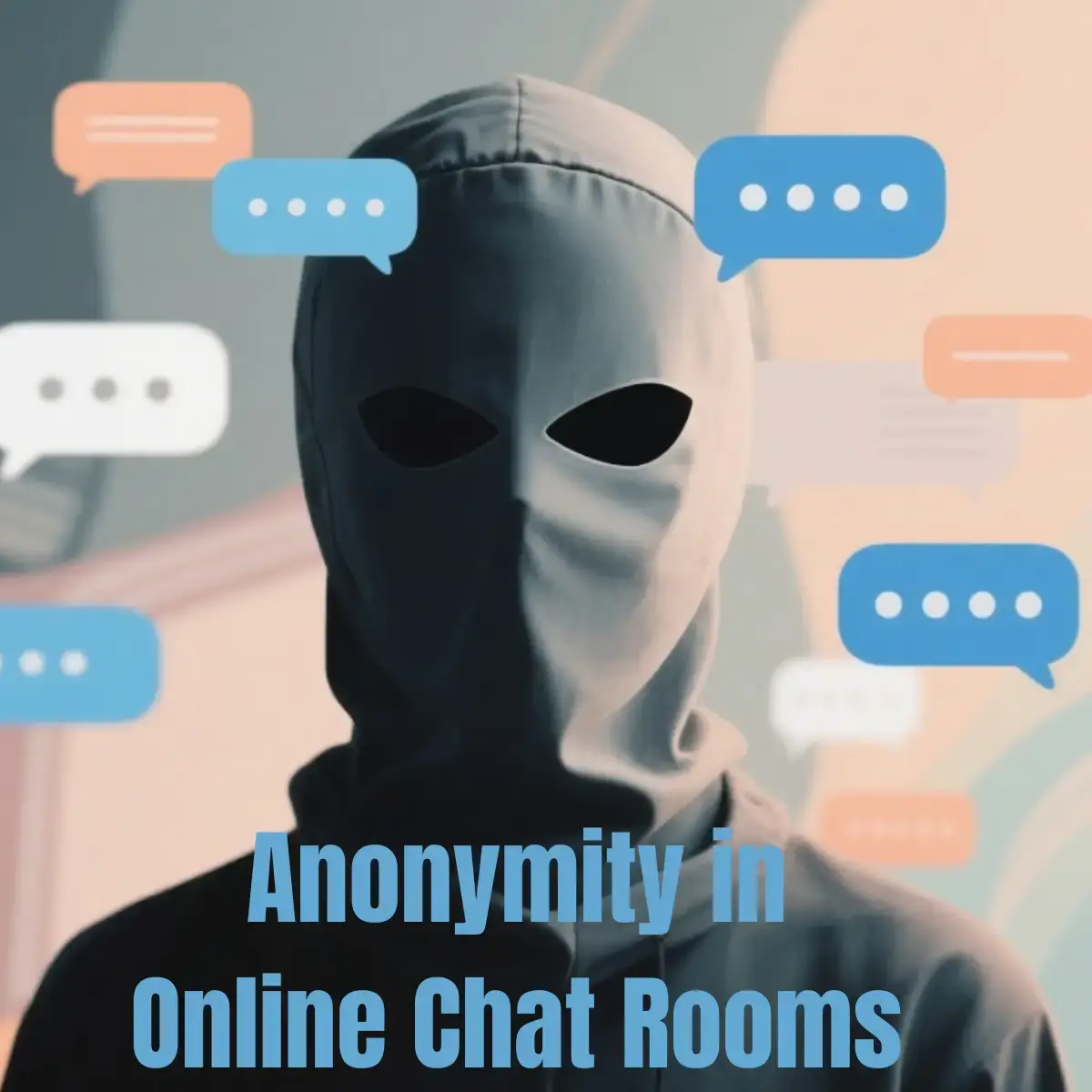The Psychology of Anonymity in Online Chat Rooms

Anonymity has been a fundamental feature of online chat rooms since their inception, creating unique psychological dynamics that both empower and challenge users. The veil of separation between one's digital persona and real-world identity unlocks fascinating behaviors, from extraordinary honesty to concerning disinhibition.
This article explores how anonymity shapes conversations in chat rooms and the psychological mechanisms that make these spaces simultaneously liberating and potentially problematic for human communication.
The Double-Edged Sword of Anonymity
Anonymity in digital spaces creates a complex interplay between freedom and responsibility. Without the constraints of physical identity, people often reveal aspects of themselves they would normally keep hidden.
Research insight: Studies show that 68% of anonymous chat users report being more honest about personal struggles, while 42% admit to sometimes behaving in ways they wouldn't in identified spaces.
Key Psychological Effects of Anonymity:
- Reduced social anxiety - Freedom from judgment based on appearance or status
- Identity exploration - Opportunity to experiment with different aspects of personality
- Honesty amplification - Increased willingness to share authentic thoughts and feelings
- Reduced accountability - Diminished sense of responsibility for one's words
- Group conformity - Stronger tendency to align with group norms without individual identity
The Online Disinhibition Effect
Psychologist John Suler's concept of the "online disinhibition effect" explains how anonymity, invisibility, and other digital factors lead people to say and do things online they wouldn't in person.
Six Factors of Online Disinhibition:
- Dissociative anonymity - "It's not really me saying these things"
- Invisibility - No one can see my reactions or body language
- Asynchronicity - Don't have to deal with immediate reactions
- Solipsistic introjection - Imagining others as characters in our mental world
- Dissociative imagination - Viewing online self as separate from offline self
- Minimization of status authority - Reduced power differentials
Beneficial Aspects of Anonymous Communication
Despite potential drawbacks, anonymity provides significant psychological benefits that facilitate important forms of communication and support.
Positive Applications of Anonymity:
- Mental health support - Sharing struggles without fear of stigma
- Minority expression - Voicing opinions without fear of discrimination
- Whistleblowing - Exposing wrongdoing without personal risk
- Identity exploration - Safely exploring aspects of sexuality, gender, or beliefs
- Honest feedback - Receiving unbiased opinions without personal bias
- Social support - Finding community for stigmatized conditions or experiences
The Dark Side: Toxic Disinhibition
When the constraints of identity are removed, some individuals exhibit aggressive, harmful, or otherwise negative behaviors they would avoid in identified situations.
Manifestations of Toxic Disinhibition:
- Cyberbullying and harassment - Attacks that would be constrained by in-person consequences
- Hate speech - Prejudiced language often suppressed in identified settings
- Trolling - Deliberately provocative behavior to elicit emotional responses
- Deception - Creating false identities or spreading misinformation
- Social loafing - Reduced effort in group tasks when individual contributions aren't tracked
Psychological Mechanisms Behind Anonymity Effects
Several well-established psychological principles help explain why anonymity produces such powerful effects on human behavior.
Underlying Psychological Principles:
- Deindividuation - Loss of individual identity in group settings leading to reduced self-regulation
- Social identity model of deindividuation effects (SIDE) - How anonymity strengthens group identity over individual identity
- Self-awareness theory - Reduced self-awareness leads to decreased alignment with personal standards
- Differential self-awareness - Private self remains while public self-awareness diminishes
- Behavioral confirmation - Adopting behaviors consistent with how one is perceived by others
Balancing Anonymity and Accountability
Successful chat room environments often strike a careful balance between the benefits of anonymity and the need for some level of accountability.
Strategies for Healthy Anonymous Environments:
- Pseudonymous persistence - Consistent identities without real-name disclosure
- Community moderation - Clear rules enforced by moderators or community members
- Reputation systems - Tracking positive contributions without revealing identity
- Gradated anonymity - Different levels of identification for different activities
- Behavioral nudges - Design elements that encourage positive interactions
- Educational resources - Helping users understand the impact of their anonymous behavior
Embracing the Complexity of Anonymous Communication
The psychology of anonymity in chat rooms reveals the complex, multifaceted nature of human communication when identity constraints are removed. Rather than being simply "good" or "bad," anonymity serves as an amplifier-enhancing both positive and negative aspects of human interaction.
Understanding the psychological mechanisms behind anonymous communication allows us to create better digital spaces that harness the benefits of reduced social anxiety and increased honesty while mitigating the risks of toxic behavior and deception.
As chat rooms continue to evolve, the challenge remains designing environments that respect users' privacy and desire for identity exploration while fostering healthy, productive communities where people can connect meaningfully without fear of abuse or harassment.
Experience Thoughtfully Designed Chat Environments
Join our communities that balance anonymity with respectful communication
Explore Our Chat Rooms